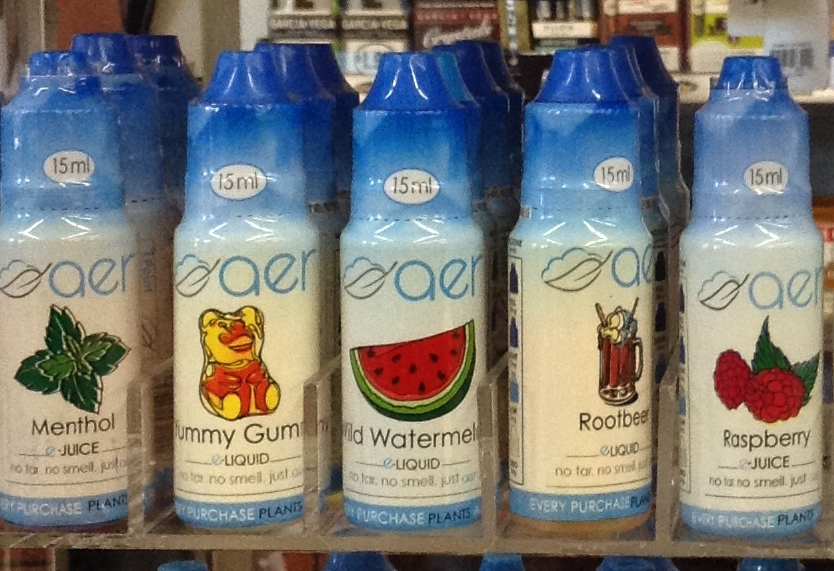On November 15, 2018, FDA Commissioner Scott Gottlieb, M.D. proposed new steps to protect youth by preventing access to flavored tobacco products and banning menthol in cigarettes.
You can read the policy framework in detail in his announcement here. Below, we summarize and weigh-in on each step, based on our current understanding and the best evidence available.
1. Have all flavored electronic nicotine delivery systems (ENDS) products (other than tobacco, mint and menthol flavors or non-flavored products) sold in age-restricted, in-person locations.
Counter Tools’ take:
Thumbs-up: This first section focuses on youth access at brick-and-mortar tobacco retailers, which is where we—Counter Tools and CounterTobacco.org—focus our energy. Tobacco retailers, such as convenience stores, have a huge influence on youth tobacco use initiation: kids who shop frequently at convenience stores are more likely to start smoking than kids who do not shop frequently at convenience stores (Henriksen, et al., 2010). And in-store tobacco advertisements and promotions create a pathway for youth to move from never-smoker to established-smoker (Slater, et al., 2007). Restricting sales of flavored ENDS to adult-only establishments is a great step in reducing youth tobacco use initiation rates. What will be critical is a robust plan for enforcement, including meaningful penalties for non-compliance. Local tobacco retailer licensing would be immensely helpful.
Thumbs-down: Exempting mint and menthol flavors is a mistake. If the goal is protect youth, the FDA has missed the mark here because menthol is linked to higher rates of tobacco use initiation (Kuiper, et al., 2018 and Nonnemaker, et al., 2013), and over half of youth and young adult smokers smoke menthol cigarettes (Vilanti, et al., 2016). Additionally, green-lighting mint and menthol flavors puts African Americans at further risk of tobacco-related diseases. Historic and continued menthol marketing efforts targeted at the African American community has resulted in a preference for menthol cigarettes by nearly 9 of every 10 African American smokers (88.5%) aged 12 years and older (Giovino, et. al., 2013).
2. Seek to curtail the sale of applicable flavored ENDS products (other than tobacco, mint and menthol flavors or non-flavored products) online without heightened age verification processes.
Counter Tools’ take:
Thumbs-up: Because most youth are acquiring ENDS devices from brick-and-mortar retailers (74% of youth JUUL users bought their device in a physical store in a 2018 truth initiative study), cracking down on online sales is a logical step—especially if a consequence of a crackdown is that sales are pushed to online platforms. Current online distributors’ age verification processes vary in sophistication and third-party sellers (for example on auction sites like eBay) may lack expertise or capacity to monitor sales (Laestadius and Yang, 2018).
3. Ban flavors in all cigars and flavored cigars should no longer be subject to the extended compliance date for premarket authorization — regardless of the location in which the products are sold.
Counter Tools’ take:
Thumbs-up: We applaud Commissioner Gottlieb and the FDA for expediting the review and analysis of the comments submitted about flavors in tobacco products. Click here to read what we submitted and note that we do not support a mint/menthol exemption in any tobacco product.
4. Pursue the removal from the market of those ENDS products that are marketed to children and/or appealing to youth. This could include using popular children’s cartoon or animated characters, or names of products favored by kids like brands of candy or soda.
Counter Tools’ take:
Thumbs-up: We approve of the removal of marketing that targets youth and urge the FDA to move quickly. Knowledge of where tobacco retailers are located will be essential to implementation and enforcement at the federal, state and local levels.
5. Ban menthol in combustible tobacco products, including cigarettes and cigars.
Counter Tools’ take:
Thumbs-up: Finally! We appreciate that the FDA seeks to gather as much evidence as possible before making moves such as the ones outlined above; however, evidence about the dangers of menthol in combustible tobacco products has been plentiful for a quite a while. We implore the FDA to act quickly in order to prevent youth tobacco use initiation, particularly among African Americans, who shoulder a disparate burden related to flavored—including and especially menthol—tobacco products.
Additional statements from national organizations:
Campaign for Tobacco-Free Kids





